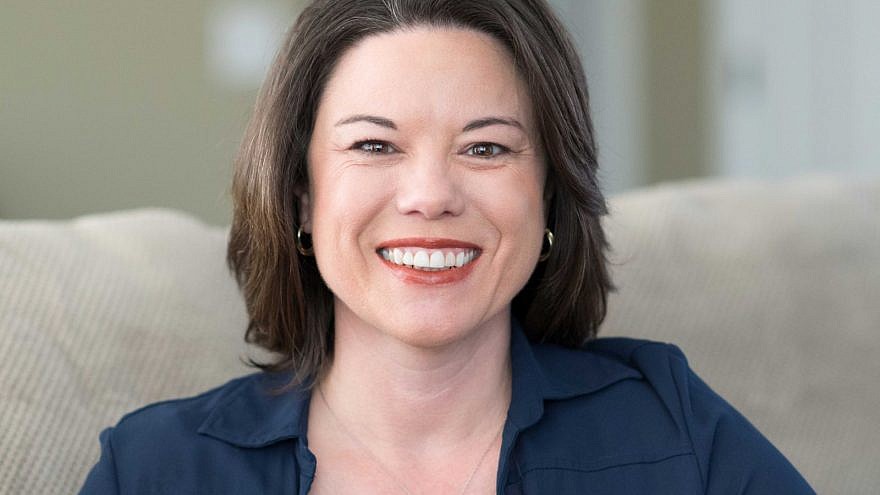Editor’s Note: A number of incoming members of Congress, including those in the upcoming Democratic House majority, will bring new faces to the Jewish and pro-Israel community. JNS will introduce some of these elected legislators as part of its “Meet the Newbie” series.
Angie Craig is a health-care executive who unseated incumbent Republican Rep. Jason Lewis on Nov. 6 and became the first LGBTQ person elected to Congress from Minnesota.
Q: What is your overall stance on the U.S.-Israel relationship?
A: I think with support we’ll be an active part of promoting a strong, safe and secure Israel, and be supportive of strengthening the relationship our country shares.
Q: What do you think is the importance behind that relationship?
A: As the only democracy in the Middle East, I think it’s very important that we share a strong economic relationship, innovation edge. One of the companies that I worked for over the past decade acquired a business in Israel with cutting-edge technology, so I’m very familiar with the innovation and the importance of making sure that Israel continues to be a democratic safe state in the Middle East.
Q: What is your stance on BDS?
A: I’m going to be an advocate in Congress for strengthening the relationship that Israel and the United States share. I support the efforts to discourage governmental entities, our trading partners and allies from participating in the BDS movement. I don’t think BDS ultimately encourages the peace process, and therefore, I will not be an active supporter of the BDS movement.
Q: What is your reaction to your fellow Minnesota congresswoman-elect Ilhan Omar, who came out in support of BDS after being elected?
A: I represent the 2nd Congressional District of Minnesota, and I do not support the BDS movement against Israel. I’ll stick with my own policy positions and let others articulate theirs.
Q: What is your position in terms of funding for Israel’s military, especially in the aftermath of the Israel-Hamas flare-up this month, in which more than 450 rockets were launched at southern Israel by Hamas in Gaza? Minnesota Rep. Betty McCollum has called for defunding U.S. taxpayer dollars towards Israel’s military.
A: I believe the U.S. must continue to support the development of defense technology for Israel. So I will continue to be a staunch supporter of the renewal of our 10-year security agreement, and as such, I support fully funding the commitment made in that agreement.
Q: What is your view on American funding for the Palestinian Authority?
A: Israel has been the victim of countless terrorist attacks. The Palestinian Authority and Hamas have failed to condemn them, and I don’t believe that it helps to encourage these blasts. We have got to insist that our partners, including the P.A., condemn such attacks and take steps to prevent them. Until such time, I could not support funding for the P.A.
Q: What is your stance on the 2015 Iran nuclear deal and the overall Iranian threat?
A: I do not think the deal was a perfect deal. At this point, we have to stay constantly vigilant to make sure that we prevent Iran from getting any nuclear weapon. I think we have got a critical role to play by building an oversight framework and making sure that we have a watchdog to call out Iran. Even as we withdraw from the agreement, we have got to make sure that Iran is held accountable. We’ve also got to initiate additional sanctions for the long-range missile testing that may be outside this agreement.
Q: Did you support President Donald Trump’s decision to withdraw from it?
A: I did not support the decision to withdraw the U.S. from it, but I believe that Iran was in violation of the spirit of some of the agreement, and that we could’ve gotten a better deal to begin with.
Q: Do you support the reimposition of sanctions on Iran?
A: Yes.
Q: What’s your reaction to America moving its embassy in Israel from Tel Aviv to Jerusalem, along with recognizing Jerusalem as Israel’s capital?
A: My calculus is always going to be that Jerusalem is an important and a critical piece of Israel. I’m not sure moving the embassy to Jerusalem at this time gets us closer to peace. We’ve got to get to an agreement that is good for Israelis and Palestinians, so I don’t believe moving the embassy to Jerusalem gets us closer to that outcome.
Q: Should the United States be the lead negotiator or mediator in talks for Mideast peace?
A: I think a bilateral agreement between Israel and the Palestinians is the correct approach.
Q: Would you be for moving back the embassy from Jerusalem to Tel Aviv were a Democrat to win the White House in 2020?
A: I don’t believe having our embassy in Jerusalem gets us closer to a conclusion of a peace process where both Israel and others can live cooperatively. I don’t think we should’ve moved the embassy to Jerusalem.
Q: What’s your reaction to anti-Semitism in the United States and worldwide, especially in the United Kingdom with the rise of Labour Party leader Jeremy Corbyn?
A: I am married to a Jewish woman. We’re an interfaith family and belong to a synagogue, and I belong to a church.
The rise of anti-Semitic behavior in America is one of the most disgusting things happening in this country right now. We have to get back to a time and a place where we’re willing to call out this kind of anti-Semitic behavior. I’m going to keep ensuring we keep fighting for American Jews and the process in Israel where we can get to peace.
Q: Do you have any specific plans in Congress regarding the U.S.-Israel relationship? For example, the Anti-Semitism Awareness Act would require the Department of Education to adopt the State Department’s definition of anti-Semitism in evaluating such incidents on college campuses and at other educational institutions.
A: I would be supportive in ensuring that our colleges and universities are educated on anti-Semitic behavior and ensuring that [the definition] is well-defined.
Q: Is there specific legislation you would introduce related to the U.S.-Israel relationship?
A: Not at this moment. We have one synagogue in our entire congressional district, and my family is intimately involved in that synagogue. We’ve got to get to a point where America can support Israel in its efforts in the peace process and, at the same time, we need to make sure that we’re not making it worse.
Q: Is there anything else our readers should know about you?
A: I believe that Israel is a special place, and that all of us should be supportive if working through a peace process that includes a two-state solution.


























